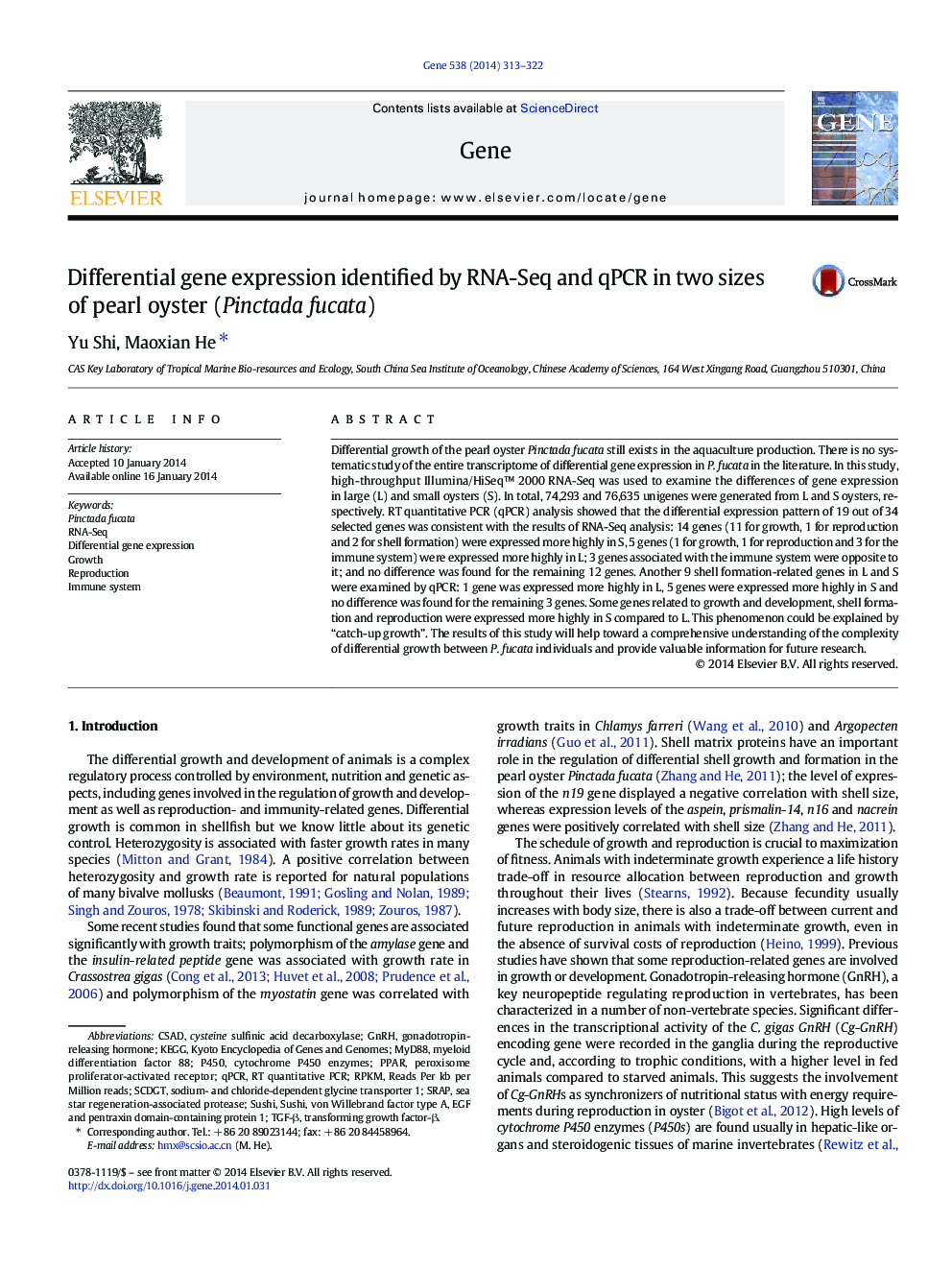| Article ID | Journal | Published Year | Pages | File Type |
|---|---|---|---|---|
| 2816567 | Gene | 2014 | 10 Pages |
•74,293 and 76,635 unigenes were generated from large and small oysters, respectively.•19 out of 34 selected genes were consistent with the results of RNA-Seq analysis.•Genes related to growth, shell formation, and reproduction were expressed higher in S than L.•This phenomenon could be explained by “catch-up growth”.•This study will help toward an understanding of the complexity of differential growth.
Differential growth of the pearl oyster Pinctada fucata still exists in the aquaculture production. There is no systematic study of the entire transcriptome of differential gene expression in P. fucata in the literature. In this study, high-throughput Illumina/HiSeq™ 2000 RNA-Seq was used to examine the differences of gene expression in large (L) and small oysters (S). In total, 74,293 and 76,635 unigenes were generated from L and S oysters, respectively. RT quantitative PCR (qPCR) analysis showed that the differential expression pattern of 19 out of 34 selected genes was consistent with the results of RNA-Seq analysis: 14 genes (11 for growth, 1 for reproduction and 2 for shell formation) were expressed more highly in S, 5 genes (1 for growth, 1 for reproduction and 3 for the immune system) were expressed more highly in L; 3 genes associated with the immune system were opposite to it; and no difference was found for the remaining 12 genes. Another 9 shell formation-related genes in L and S were examined by qPCR: 1 gene was expressed more highly in L, 5 genes were expressed more highly in S and no difference was found for the remaining 3 genes. Some genes related to growth and development, shell formation and reproduction were expressed more highly in S compared to L. This phenomenon could be explained by “catch-up growth”. The results of this study will help toward a comprehensive understanding of the complexity of differential growth between P. fucata individuals and provide valuable information for future research.
